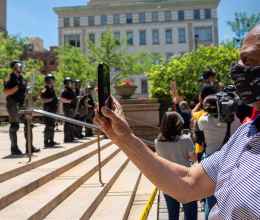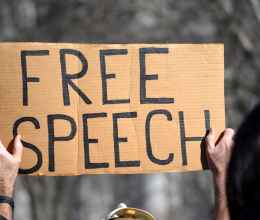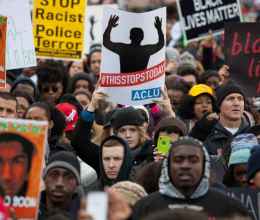Freedom of speech, of the press, of association, of assembly and petition -- this set of guarantees, protected by the First Amendment, comprises what we refer to as freedom of expression. Without it, other fundamental rights, like the right to vote, would wither and die. We respond to a variety of issues, including political protest, freedom of expression online, journalists' rights, scientific freedom, and openness in the courts.
“Freedom of expression is the matrix, the indispensable condition, of nearly every other form of freedom.”
—U.S. Supreme Court Justice Benjamin N. Cardozo in Palko v. Connecticut
The fight for freedom of speech has been a bedrock of the ACLU of Louisiana’s mission since the organization was founded in 1956, driven by the need to protect the constitutional rights of desegregation activists and others. The organization’s work later spread to combating censorship, securing the right to assembly, and promoting free speech in schools.
Almost a century later, these battles have taken on new forms, but they persist. The ACLU continues to champion freedom of expression in its myriad forms — whether through protest, media, online speech, or the arts — in the face of new threats. For example, new avenues for censorship have arisen alongside the wealth of opportunities for speech afforded by the Internet. The threat of mass government surveillance chills the free expression of ordinary citizens, legislators routinely attempt to place new restrictions on online activity, and journalism is criminalized in the name of national security. The ACLU is always on guard to ensure that the First Amendment’s protections remain robust — in times of war or peace, for bloggers or the institutional press, online or off.
Over the years, the ACLU at large has frequently represented or defended individuals engaged in some truly offensive speech. We have defended the speech rights of communists, Nazis, Ku Klux Klan members, accused terrorists, pornographers, anti-LGBT activists, and flag burners. That’s because the defense of freedom of speech is most necessary when the message is one most people find repulsive. Constitutional rights must apply to even the most unpopular groups if they’re going to be preserved for everyone.







